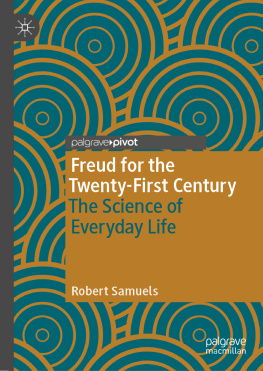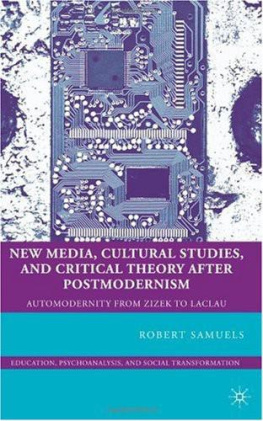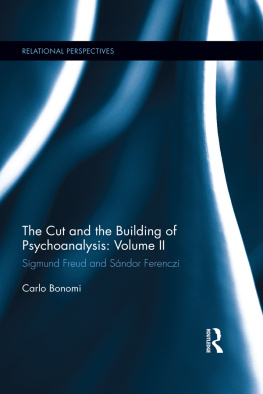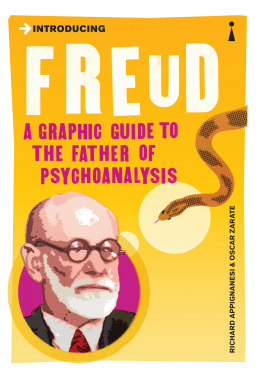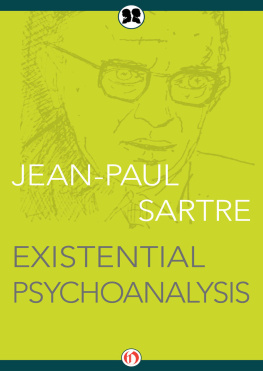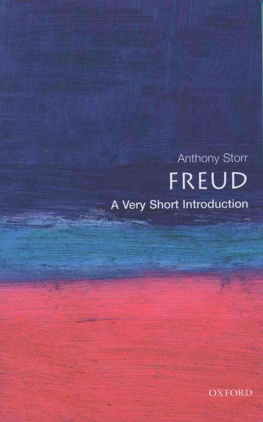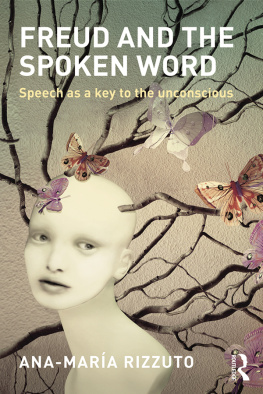Contents
Landmarks
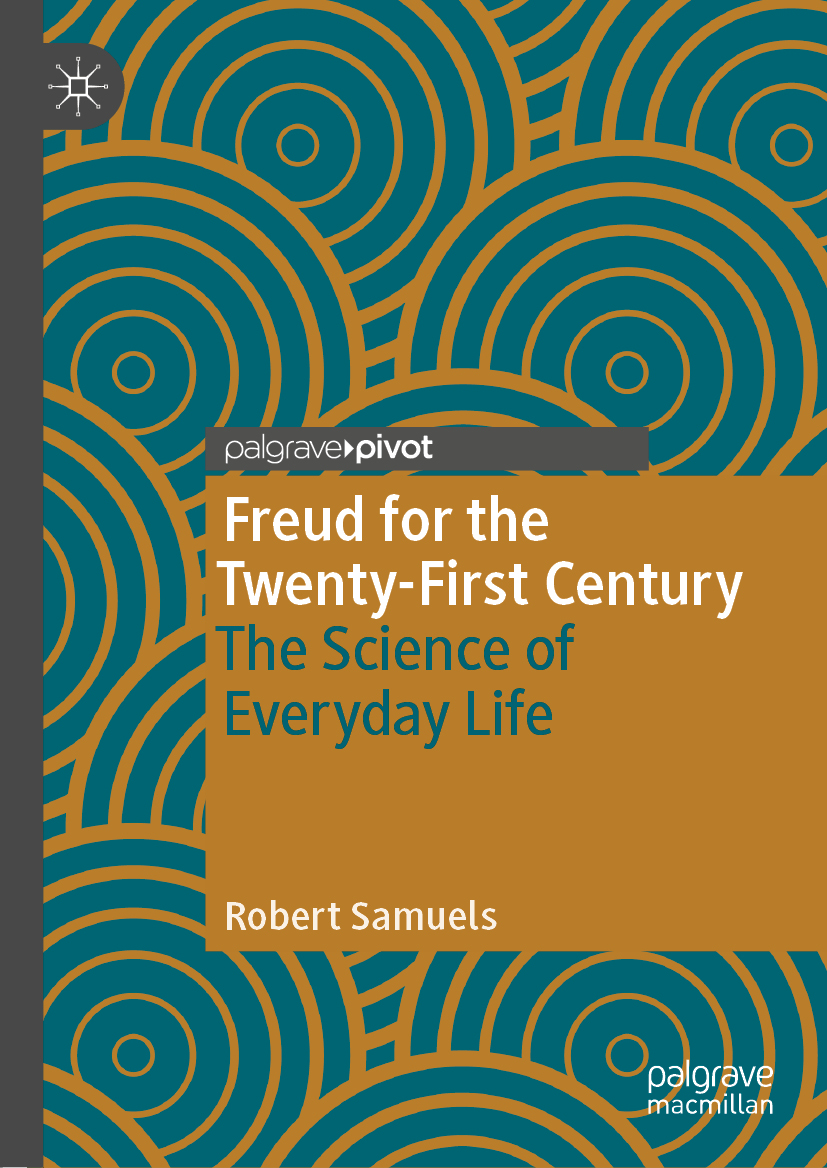
Robert Samuels
Freud for the Twenty-First Century The Science of Everyday Life
Robert Samuels
University of California, Santa Barbara, Santa Barbara, CA, USA
ISBN 978-3-030-24381-4 e-ISBN 978-3-030-24382-1
https://doi.org/10.1007/978-3-030-24382-1
The Editor(s) (if applicable) and The Author(s), under exclusive license to Springer Nature Switzerland AG 2019
This work is subject to copyright. All rights are solely and exclusively licensed by the Publisher, whether the whole or part of the material is concerned, specifically the rights of translation, reprinting, reuse of illustrations, recitation, broadcasting, reproduction on microfilms or in any other physical way, and transmission or information storage and retrieval, electronic adaptation, computer software, or by similar or dissimilar methodology now known or hereafter developed.
The use of general descriptive names, registered names, trademarks, service marks, etc. in this publication does not imply, even in the absence of a specific statement, that such names are exempt from the relevant protective laws and regulations and therefore free for general use.
The publisher, the authors and the editors are safe to assume that the advice and information in this book are believed to be true and accurate at the date of publication. Neither the publisher nor the authors or the editors give a warranty, expressed or implied, with respect to the material contained herein or for any errors or omissions that may have been made. The publisher remains neutral with regard to jurisdictional claims in published maps and institutional affiliations.
Cover illustration: John Rawsterne/patternhead.com
This Palgrave Pivot imprint is published by the registered company Springer Nature Switzerland AG
The registered company address is: Gewerbestrasse 11, 6330 Cham, Switzerland
With this nimble volume, Samuels emerges as a peerless Freudian life coach. Without ever abandoning Freuds own belief in the value of science, and engaging with key contemporary advocates of the enlightenment doctrine, he articulates the so desperately needed, poetic wisdom for our times. This is a book to be read and re-read, ad infinitum .
Dany Nobus, Brunel University London
Contents
The Author(s) 2019
Robert Samuels Freud for the Twenty-First Century https://doi.org/10.1007/978-3-030-24382-1_1
1. Introduction: The Science of Everyday Life
Robert Samuels
(1)
University of California, Santa Barbara, Santa Barbara, CA, USA
Robert Samuels
Abstract
This chapter argues that Freuds theories and practices can help us live better lives by applying the scientific method to everyday life. Although Freud resisted giving advice, and he focused on abnormal psychology, my goal is to show that we can take his ideas and apply them to how we understand our selves and the world around us in the twenty-first century. Not only can we live more rational and satisfying lives, but we can also overcome many of our political and social problems if we understand how reason, emotions, desires, and the unconscious work.
Keywords
Freud Science Reason Emotion Desire Unconscious
In this book, I argue that Freuds theories and practices can help us live better lives by applying the scientific method to everyday life. Although Freud resisted giving advice, and he focused on abnormal psychology, my goal is to show that we can take his ideas and apply them to how we understand our selves and the world around us in the twenty-first century. Not only can we live more rational and satisfying lives, but we can also overcome many of our political and social problems if we understand how reason , emotions, desires, and the unconscious work.
The first step in this process is to define the scientific process and how Freud applies it to everyday life. As I discuss in Chapter
In Chapter , I turn to Freuds misunderstood theory of the pleasure principle to examine why people are driven to remove themselves from tension and conflict by repressing their own sense of guilt , shame, responsibility, and freedom . Freud posits that the core drive of human beings is to use as little energy as possible by avoiding all stimulation, and this type of psychic death leads to lives dominated by addiction and makes it difficult for us to address important interpersonal and social problems. In fact, I argue that the biggest threat facing humanity is our ability to derive instant pleasure from new technologies, media, and drugs.
As I describe in Chapter Moreover, Freud insisted that infants naturally hallucinate the satisfaction of their wishes, and so they have to be taught to differentiate between their internal fantasies and external reality. I claim in this chapter that the primary way that people escape reality and satisfy the demands of the pleasure principle is through wish fulfillment in the unconscious .
In Chapter , I discuss how Freuds theory of transference and narcissism relate to the way that we make a call to others to fix reality and help us satisfy the pleasure principle . Not only do we turn to others to satisfy our desires, but we want our others to verify our sense of being good and right. Moreover, this structure of obsessional narcissism helps to explain the limitations of contemporary liberalism and the failure of many forms of analysis and therapy.
In Chapter , I examine some of the many ways that people misunderstand psychoanalysis and global progress. In reviewing the distorted interpretations of the pleasure principle , the reality principle, the primary processes , and transference , I reveal how psychoanalysis has been repressed from within psychoanalysis itself. I also connect this repression to the ways people deny the evidence concerning our global progress.
The final chapter looks at Yuval Hararis 21 Lessons for the 21st Century to examine why liberal academic culture often rejects global progress and focuses on negative portrayals of the world. By using Freuds fundamental concepts to analyze Hararis work, I provide a model for psychoanalytic cultural criticism. The goal then of this work is to show that psychoanalysis is not only still relevant today, but in actuality, Freuds theories and practices have never been more essential for understanding and changing ourselves and the world around us.
Notes
Freud develops his ideas on the reality principle in Project for a scientific psychology (1950 [1895]). The Standard Edition of the Complete Psychological Works of Sigmund Freud, Volume I (18861899): Pre-Psycho-Analytic Publications and Unpublished Drafts. 1966. 281391; and Formulations on the two principles of mental functioning . The Standard Edition of the Complete Psychological Works of Sigmund Freud, Volume XII (19111913): The Case of Schreber, Papers on Technique and Other Works. 1958. 213226.
Hilgard, Ernest R. Impulsive versus realistic thinking: An examination of the distinction between primary and secondary processes in thought. Psychological Bulletin 59.6 (1962): 477.

